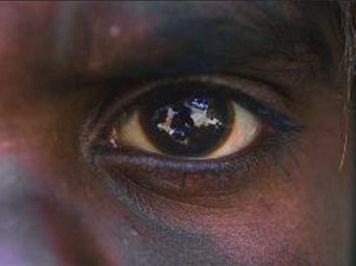Suicide prevention researcher Gerry Georgatos is calling for tailored support to the elevated risk groups to suicide. In a series of eight articles, he has disaggregated and highlighted each of eight elevated risk groups to suicide: Noongar peoples, language diverse migrants, construction and FIFO workers, combat veterans, the homeless, former inmates, people living below the poverty line and regional and remote living persons.
THE NOONGAR PEOPLES of Western Australia, as a distinct population group, are the nation’s most at-risk population group to suicide. The suicide toll among Noongar peoples has tragically reached the highest number of suicides of any Aboriginal and/or Torres Strait Islander population group.
Of Australian cities, Perth is recording the highest number of First Nations’ suicides.
This year alone thus far, Perth’s Armadale to Midland corridor has recorded double the number of suicides than the whole of the Kimberley region’s suicides.
For two decades, proportional to population, regionally the Kimberley has been mired with the highest rate of First Nations’ suicides, followed by Far North Queensland, South East Queensland and South Western WA. However, in terms of a distinct cultural identity of First Nations peoples, the Noongar peoples are recording the highest number of suicides and rate.
2017 will record a higher suicide toll than 2016 for Aboriginal and/or Torres Strait Islander peoples, and, proportional to population, will continue to record a rate of suicide among Aboriginal and Torres Strait Islander peoples two-and-a-half times the overall Australian suicide rate.
However, the Noongar peoples of South Western Australia, as a population group, are losing more people to suicide than any other Aboriginal and/or Torres Strait Islander population group. The suicide rate of Noongar peoples is almost three times the national Aboriginal and Torres Strait Islander suicide rate.
The Noongar peoples number nearly 40,000 and comprise nearly 5% of the total Aboriginal and Torres Strait Islander population, but the Noongar peoples account for between 12.5% to 15% of Aboriginal and Torres Strait Islander suicides.
As a suicide prevention and poverty researcher, and as someone who supports suicide affected families, I can validate research with the experiential. There is an intersection of extreme poverty with the suicides.
Cumulative despair, aberrant behaviours, attempted and actual suicides are increasing, and sadly will continue to do, so this is the grim reality. Tragically, the Noongar peoples of Western Australia will record an extraordinarily high number of suicides for 2018. The majority of the suicides have been occurring in Perth.
It should be unimaginable that the suicide toll is higher in Perth than in most of regional and remote Australia, where there are deprivations, and, in many remote communities, third-world-akin conditions. Perth is a critical mass of services, but most of the services are in-reach, in-house services, as opposed to outreach. There is a dire need for a variety of substantive outreach services to respond and address the firmament of issues that are overwhelming the critically vulnerable.
Without the relentless psychosocial supports of a substantial outreach workforce, the poverty cycle that intersects with suicide and aberrant behaviour will continue to take lives and decimate families. Noongar peoples have a suicide rate nearly three times the national Aboriginal and Torres Strait Islander suicide rate.
Abominably, one in ten Noongar males is incarcerated — from a racialised lens, the highest in the nation and, in fact, the world. One in nine of Perth’s Noongar children has been removed into out-of-home care. If this at-risk layer of Noongar peoples is not highlighted and if there is no shared understanding of their catastrophic predicament, they risk being left behind to increasingly fill the prisons, finish up homeless or commit suicide.
We have a moral obligation to do so much more than the relatively little that is being done for those most in need.
If you or any of your friends and family require help, please contact Lifeline on 13 11 14.
Gerry Georgatos is the national coordinator of both the National Indigenous Critical Response Service and the National Migrant Youth Support Service. You can follow Gerry on Twitter @GerryGeorgatos.
The National Indigenous Suicide Prevention Conference see the website for more information https://t.co/aRjaGNgm7V and the World Indigenous Suicide Prevention Conference: 2018 Perth WA. So save the date (19–23 November 2018). @AMSANTaus @NACCHOAustralia @AustPsych @IAHA_National
— Tanja Hirvonen (@TTanja23) July 16, 2018
 This work is licensed under a Creative Commons Attribution-NonCommercial-NoDerivs 3.0 Australia License
This work is licensed under a Creative Commons Attribution-NonCommercial-NoDerivs 3.0 Australia License
Support independent journalism Subscribe to IA.












